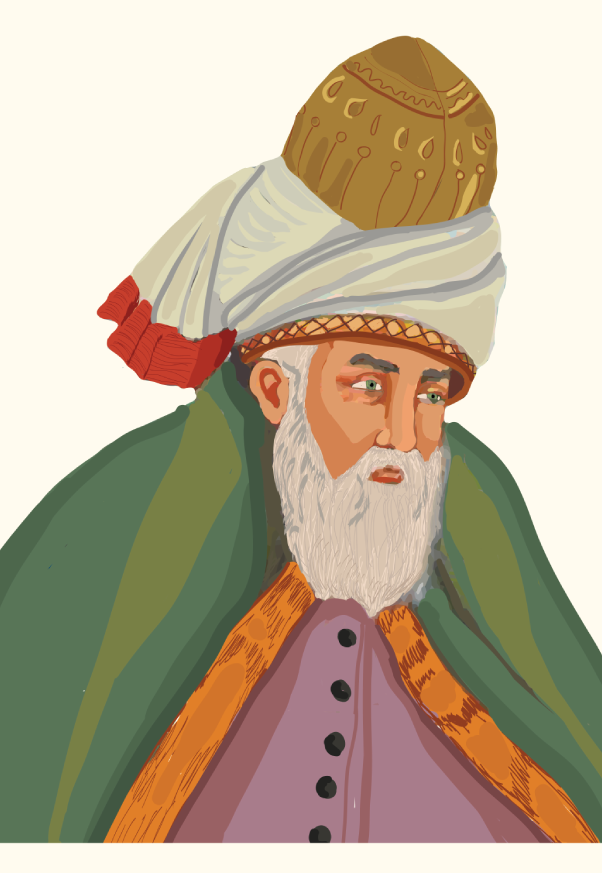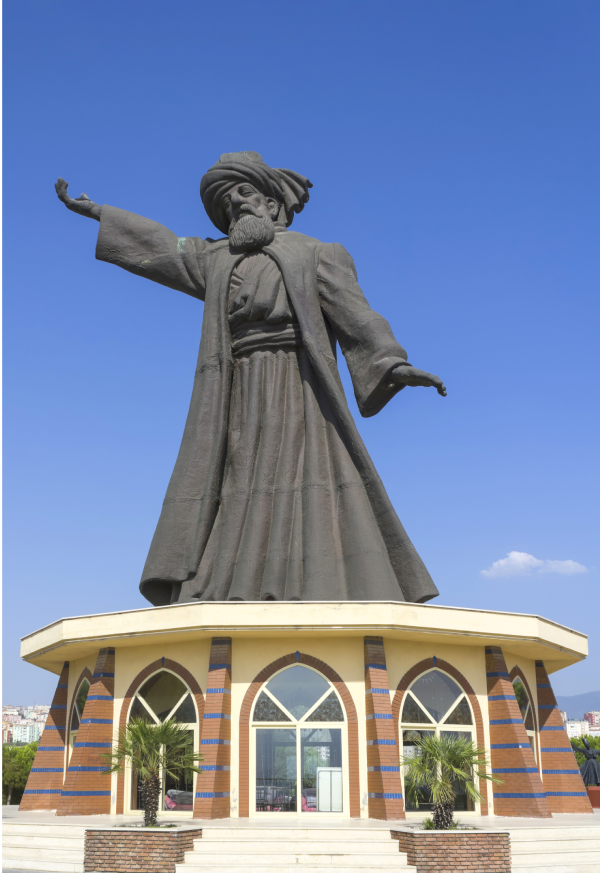Rumi
13th Century Poet, Hanafi Faqih, Islamic Scholar, Maturidi Theologian and Sufi Mystic
(30th September 1207 – 17th December 1273)


Peace Quotes
Background
Jalāl al-Dīn Rūmī was born on 30th September 1207 in Balkh, now known as present-day Afghanistan. He was a 13th-century Persian poet, Islamic scholar, and Sufi mystic whose profound teachings on love, unity, and spirituality have left an enduring legacy, promoting peace and understanding across cultures.
After his family fled the Mongol invasions and eventually settled in Konya (modern-day Turkey), Rūmī became a renowned religious scholar and jurist. His life underwent a transformative shift upon meeting the wandering dervish Shams al-Dīn Tabrīz in 1244, whose deep spirituality inspired Rūmī to embrace Sufism fully.
This encounter led to the creation of Rūmī’s most celebrated works, including the Masnavi-yi Maʿnavī (“Spiritual Couplets”) and the Divān-e Shams (“The Collected Poetry of Shams”), which explore themes of divine love, unity, and the human connection to the divine.
Rūmī’s philosophy emphasises the transformative power of love and the importance of transcending the ego to achieve spiritual enlightenment. He advocated for tolerance and understanding among different faiths, viewing all religions as paths leading to the same ultimate truth.
Rūmī’s teachings encourage individuals to look beyond superficial differences and recognise the shared humanity that unites all people.
Beyond his literary contributions, Rūmī’s influence extends into the Mevlevi Order, commonly known as the Whirling Dervishes, founded by his followers after his death.
This Sufi order is renowned for its practice of the sema (whirling dance), a form of meditation that symbolises the spiritual journey toward God. The Mevlevi Order has played a significant role in promoting interfaith dialogue and cultural exchange, embodying Rūmī’s message of peace and unity.
Rūmī’s enduring legacy is evident in the global appreciation of his poetry, which continues to inspire individuals seeking spiritual depth and inner peace. His works have been translated into numerous languages, resonating with readers worldwide and fostering a deeper understanding of the universal themes of love, tolerance, and the quest for truth.


































